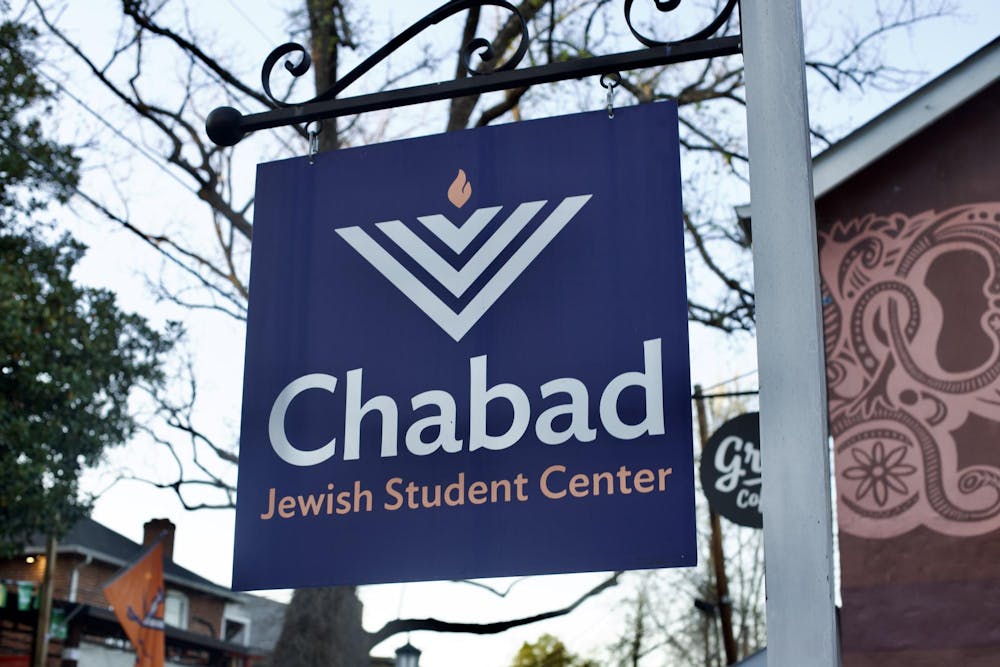With Passover starting Saturday, the Brody Jewish Center — the Hillel chapter at the University serving over 1,000 Jewish students — and Chabad House, a more traditional Jewish center on Grounds, will host a number of events providing opportunities for Jewish students and community members to observe the holiday while away from home. These events also aim to accommodate the dietary restrictions observed during this time.
Passover, the most celebrated Jewish holiday worldwide commemorates the liberation of the Israelites from Egyptian slavery. It will begin Saturday evening and be observed for eight days. The holiday centers around ritual Seder — a traditional feast held at the beginning of Passover — meals featuring symbolic foods, prayers and the retelling of the Exodus story.
To commence the holiday, both the BJC and Chabad begin with two evenings of Seder meals. Annie Weinberg, executive director at the BJC and Class of 2019 alumna, elaborated on the symbolism of each component in the Seder plate, which include a shank bone representing the Passover sacrifice, an egg symbolizing spring and the cycle of life and salt water representing the tears of those in slavery in Egypt.
As students prepare to celebrate Passover away from home, Jake Bernstein, engagement intern at the BJC and second-year Commerce student, shared his appreciation for the community he finds at BJC events.
“I know being away at college, some people miss their family a lot, and they miss engaging in the traditions that they're missing out on back home,” Bernstein said. “Going to the Seder at the Brody Jewish Center is a really nice way for Jewish students to feel a sense of community and even a sense of family and having a home away from home.”
Weinberg also noted the importance of making it possible for Jewish students to connect more deeply with their faith and traditions while away from home.
"We're trying to make it as easy as possible for students to observe Passover, the way they did at home, on Grounds," Weinberg said.
She also noted that while Jewish students practice their faith to varying degrees, the BJC provides support and community during Passover.
"Some of them never celebrated or they didn't keep Passover growing up. Not all Jewish people stay strictly kosher for their Passover. What's fun for us is that sometimes students will say that college was the first time they actually started keeping kosher for Passover the whole time."
Bernstein also said that many non-Jewish students attend to learn about Jewish culture. The Passover Around Grounds dinner — a second-night Seder hosted by the BJC and open to students of all backgrounds — takes place in various locations from student homes to Greek houses, allowing more students to experience the tradition.
While other events are not closed to non-Jewish students, the Passover Around Grounds dinner is specifically hosted to welcome those of all faiths. Registration for both kosher daily lunches and the two Seder meals remain open and currently, 130 people have registered for Passover Around Grounds with 30-60 students planning to attend daily lunches.
The BJC's schedule also includes numerous kosher-for-Passover lunches and social activities throughout the holiday — all free for students. For Jewish students, navigating dietary restrictions during Passover can present challenges. Sircia Levitt, engagement intern at the BJC and fourth-year Commerce student, explained the dietary restrictions she observes during Passover.
“The main idea is that you can't eat anything leavened,” Levitt said. “You can't eat bread, crackers, any type of bread product, no bagels, no Bodos. So instead, what you eat is matzah, which is this unleavened, flat cracker type bread.”
Jewish students might refrain from consuming bread, oatmeal, rice, beer, liquor or processed foods during Passover to avoid consuming grain products and adhere to Jewish Passover traditions.
In future years, Bernstein said he would like to see more accommodations for students in on-Grounds dining options during Passover.
“I think at some point in the future, it would maybe be nice to see the dining halls accommodate these more seasonal dietary restrictions,” Bernstein said. “Maybe similar to … the Ramadan meal exchanges.”
Chabad of Charlottesville will also host their traditional Seders at the Chabad House and provide kosher-for-Passover meals throughout the week for students observing dietary restrictions.
Other events include a Shabbat dinner hosted by the BJC April 18, as well as a weekend meal pickup option — which adheres to dietary restrictions — offered to students for the second weekend of Passover. More information about event schedules can be found at the websites of the Brody Jewish Center and Chabad of Charlottesville.







